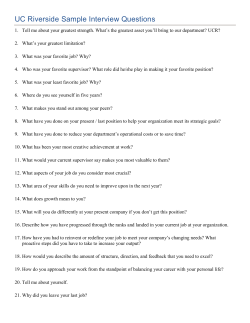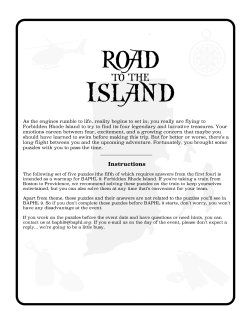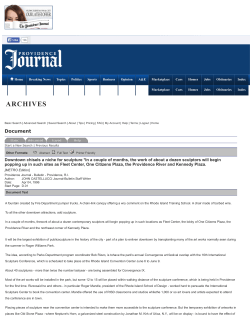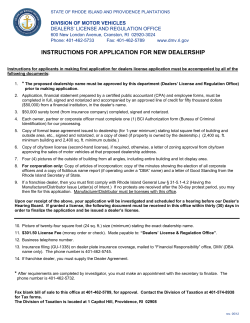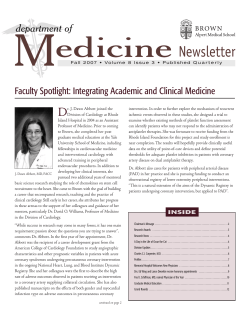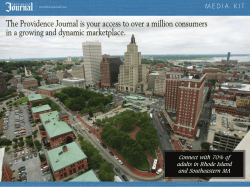
Frequently Asked Questions Concerning the Unified Carrier Registration System
Frequently Asked Questions Concerning the Unified Carrier Registration System _______________________________________________________________________ Q: What is UCR? UCR is the Unified Carrier Registration program. Created by federal legislation, it replaces the former system for registering the operators of vehicles engaged in interstate travel – the Single State Registration System (SSRS). Q: Are there differences between the UCR and the former program? Yes. Most notably, the UCR applies not only to for-hire motor carriers (as was the case under SSRS) but rather to all operators of Commercial Motor Vehicles. That would include all Commercial Motor Vehicle carriers carrying their own goods and products across state lines. It also includes carriers transporting interstate goods even if your vehicles do not leave the state. Q: Under the UCR program, what constitutes a “Commercial Motor Vehicle”? Any self-propelled or towed (like a trailer) vehicle used on highways engaged in interstate travel that: - has a gross weight of 10,001 pounds or more or, - is designed to transport 11 or more passengers (including the driver) or, - is required to have hazardous waste placarding Q: Does the UCR registration requirement extend to vehicles that are used exclusively for intrastate (as opposed to interstate) travel? Generally no, except for carriers of interstate goods. A good example would be the fleet of a Rhode Island beer distributor that operates between points in Rhode Island. Because the goods originated from another state, the local fleet would have to register with the UCR. There’s another thing to keep in mind. If your vehicle, or the fleet of vehicles, is not registered with the UCR, you would be limited to travel inside Rhode Island. That would, for example, keep you from driving from Tiverton to East Providence via Route I-195 in Massachusetts, or any similar instance where you would cross state lines for any purpose. Q: Say I am a Rhode Island plumber carrying my own tools and my own supplies and I cross into (or through) Massachusetts or Connecticut. Do I have to register? Absolutely, if your vehicle(s) is 10,001 or greater GVW. Q: What if I’m a Rhode Island baker delivering my own goods and I cross state lines? Must I register? Yes, and the butcher and candlestick maker as well. (GVW 10,000+, of course) Q: How about a limousine company? Yes, if any of the vehicles operated are designed to carry 10 passengers or more (not including the driver) and cross state lines at any time. Rhode Island prom and wedding trips frequently cross into neighboring states. Q: Will the registration apply to individual vehicles or will a single registration apply to the entire fleet? One registration based on fleet size applies to all the vehicles that are registered under your USDOT number. Q: How do I determine fleet size? Follow the instructions on the registration sheet, keeping in mind that power units and trailers are counted separately. If you self-register, that most current fleet information you provided to the USDOT will be available for your review. Q: What if I have offices in other states besides Rhode Island? If your primary base of operation is Rhode Island, you declare RI as your “base state” and register your entire fleet (including those vehicles located/operated in other states) once. Q: What happens if I don’t register for UCR? Each participating state (39 states for calendar year 2007) has authority to enforce registration compliance through roadside enforcement checks (and subsequent citations/fines) and through comprehensive business audits. An unregistered vehicle stopped in Rhode Island, for example, would be subjected to a $300.00 fine for each occurrence. Keep in mind that that is just for Rhode Island. A company traveling to Maine could be stopped in RI, Mass., N.H. and Maine and fined in each jurisdiction. Business audits allow participating states to ascertain, among other things, if companies indeed declared their proper fleet size regarding interstate business. Failure to do so carries severe penalties in certain states. Q: When will that enforcement commence? The UCR Board of Directors has authorized States to begin enforcement on November 1, 2007. Q: What are the fees? The fees, established by the UCR board, are flat sums based on fleet size. THE FEE BRACKETS FOR MOTOR CARRIERS ARE AS FOLLOWS: Fleet Size (Include Trailers) From 0 3 6 21 To 2 ----------------------------------------------- $ 5 ----------------------------------------------- $ 20 ----------------------------------------------- $ 100 ------------------------------------------------$ Fee Per Company 39.00 116.00 231.00 806.00 101 1,001 1,000 ----------------------------------------------- $ 200,000 ----------------------------------------------- $ 3,840.00 37,500.00 Example: A motor carrier operating four tractors, eight trailers and nine straight trucks has a fleet size of twenty-one commercial motor vehicles and pays $806.00. Q: OK, so how do I register? Since this is a new program with several thousand potential UCR registrations in RI alone, we strongly encourage business owners to register and pay the registration fee on-line. Go to www.ucr.in.gov and follow the step-by-step process. If you haven’t already, you will soon receive a notice from us including a registration form. As an alternate to on-line registration, you can fill out that form and send it along with a certified check or money order to the Division of Public Utilities and Carriers, 89 Jefferson Blvd., Warwick, RI, 02888. Make sure that you update your MCS-150 form with the USDOT and that your fleet calculations for UCR match that USDOT info. Q: Will I get a certificate to prove my registration with UCR? No. The registration information is being kept in a national database that can be accessed by law enforcement personnel as part of routine roadside checks. Q: Will registration renewals be annual? Yes, but since the program was delayed in coming on-line, the registration fee you pay in the coming weeks applies to all of Calendar Year 2007. UCR was scheduled to go into effect on January 1, 2007. The registration program for 2008 has yet to be determined.
© Copyright 2025


